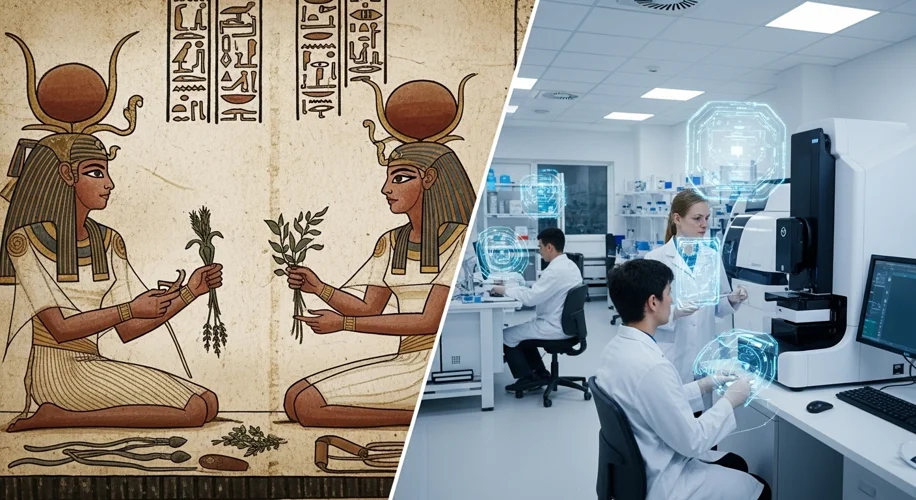It’s fascinating to think about how long humans have been concerned with living longer, healthier lives. We often see modern medicine, with its gene therapies and advanced diagnostics, as the peak of this endeavor. But our pursuit of longevity is as old as civilization itself.
Think back to ancient Egypt. Their approach to health and disease wasn’t about high-tech gadgets, but about understanding the body through observation and empirical knowledge. They developed sophisticated medical practices for their time, including surgery and the use of herbal remedies, documented on papyri that still offer us insights today. Their focus was on maintaining balance within the body, a concept that resonates surprisingly well with some modern holistic health ideas.
Across the globe, ancient Greek physicians like Hippocrates emphasized diet, exercise, and environmental factors in maintaining health. The idea that lifestyle plays a crucial role in well-being isn’t new; it’s a principle they deeply understood and advocated for. They believed that a balanced life, free from excess, was the key to a long and healthy existence.
Meanwhile, in ancient China, traditions like acupuncture and herbal medicine developed over millennia. These practices were rooted in the concept of balancing vital energy, or Qi, within the body. While different in theory from Western medicine, the goal was the same: to promote health and extend life by addressing the root causes of illness.
What’s striking when we compare these historical approaches to our current technological advancements is the continuity of our fundamental goals. Whether it was the Egyptians carefully preparing remedies or us developing precise gene-editing tools, we’re all trying to understand and influence the biological processes that govern life and its duration.
Modern technologies like CRISPR gene editing and AI-powered diagnostics are undeniably powerful. They offer us unprecedented precision in understanding and potentially intervening in our biology. We can now identify genetic predispositions to diseases and develop targeted treatments with a level of accuracy our ancestors could only dream of.
However, it’s worth pausing to consider the wisdom embedded in those older practices. While technology gives us new tools, the ancient emphasis on lifestyle, diet, and overall balance remains remarkably relevant. Perhaps the most effective path forward isn’t just about creating more advanced technologies, but about integrating them with the enduring lessons of how to live well – lessons that have been cultivated over thousands of years.
As we continue to push the boundaries of what’s possible in extending human healthspan, it’s a good reminder to look back. The past offers not just historical curiosity, but valuable perspectives on the enduring human desire for a long and meaningful life.

